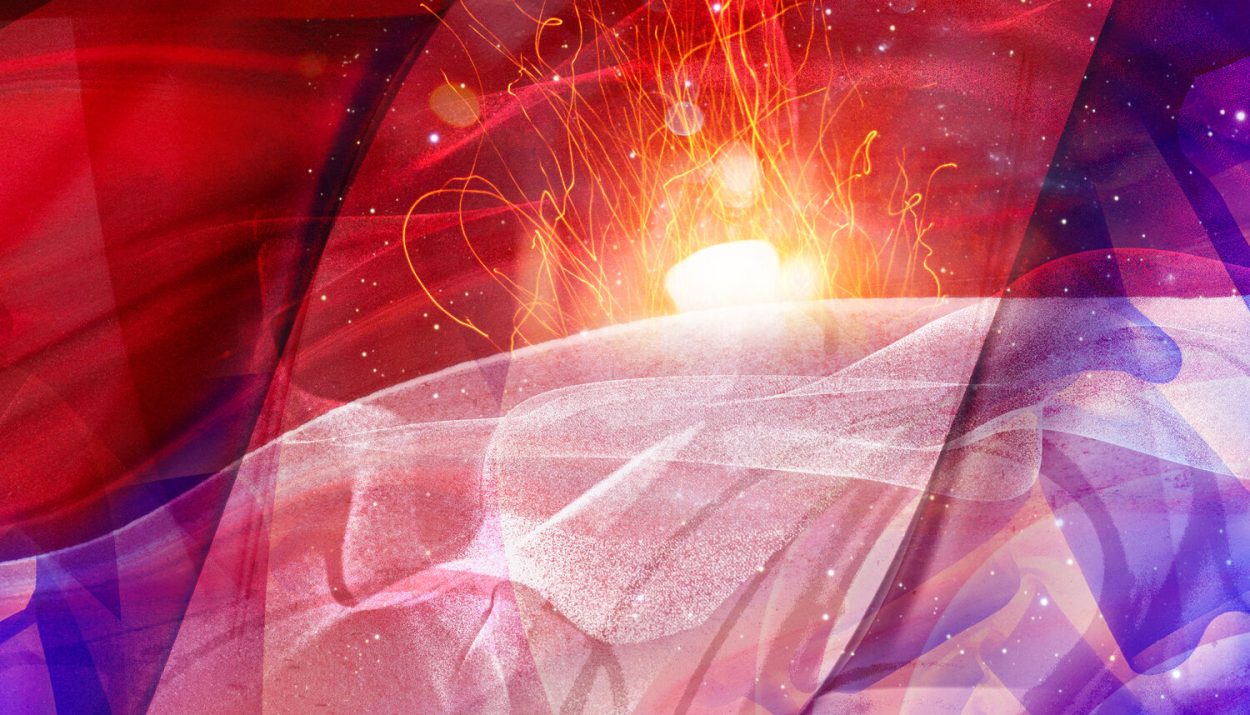Few artists arrive in your listening life with an unexpected resonance as Forrest Hill has with his recent offering, “Beyond The Veil.” A singer-songwriter of rare depth, Hill has built a career on thoughtful lyricism and tender folk-rock sensibilities, yet his sixth solo album feels like a moment of profound expansion. Having carved a space for himself with “Living On The Edge Of Time,” Hill returns with a familiar and a new record, traversing uncharted terrain in psychedelic folk-rock while keeping his roots planted firmly in the soil of human connection. I’ll admit it—this album has made me fall headfirst for his craft.
“Beyond The Veil” is a beautiful journey. Across its tracks, Hill explores the great paradoxes of being human: alienation and belonging, despair and renewal, fragility and strength. His warm, weathered, and unpretentious voices guide us like a trusted companion through each turn of the album’s landscape. Produced alongside his longtime collaborator J. Christopher Thomas, the record blends organic folk textures with shimmering psychedelic layers that nod to influences like The Shins and The War On Drugs, without ever losing Hill’s distinctly intimate tone. The result is a spacious yet grounded soundscape where his reflections on love, loss, and meaning unfold with cinematic grace. Let’s delve in!
The opener, “Another Day,” sets a peaceful tone, a meditative reflection on impermanence. Hill’s tender, grounded vocals drift through airy arrangements and flowing guitar textures, offering a mindful embrace of life’s ebb and flow. His performance here is understated but deeply resonant, the repeated reassurance of “Yeah I’m OK” carrying a fragile strength that lingers.
“Still Believe” continues the reflective current but with an anthem-like lift. Hill wrestles with uncertainty while holding fast to love and hope. His warm, raspy delivery feels lived-in, the kind of voice that carries wisdom earned through experience. Acoustic textures and steady rhythms give the song a dreamlike quality, its lyrical refrain—“If you find that it all comes down to the love that we give for free”—ringing like both a question and a promise.
The urgency heightens with “Can’t Wait For A Savior,” a stirring anthem that pushes into social commentary. Here, Hill confronts shadows of climate collapse, greed, and humanity’s thirst for redemption. His vocals shift toward defiance, the grit in his tone underscoring the haunting refrain: “We can’t wait for a savior.” Layered percussion and pulsing bass create momentum, while guitars ring like distant thunder. It’s a track that feels as timely as it is timeless.
The album takes a deeply personal turn with “Psilocybin,” perhaps its most haunting and cathartic moment. Through raw lyrics of trauma, fire, and transcendence, Hill opens a portal to healing. His delivery feels ritualistic, as though he’s exorcising darkness with every line. The production mirrors the psychedelic theme, blending shimmering guitars and atmospheric textures that oscillate between shadow and light, mirroring the transformation he sings of.
“Flow Like A River” pulls us back to grounded resilience. Hill’s earnest vocals soar against a steady backdrop of flowing guitars and layered harmonies, delivering a powerful reminder to guard the heart from poison and let love lead the way. It’s a confessional piece that crescendos into a cathartic anthem, balancing vulnerability with strength.
With “Come All You Dreamers,” Hill delivers a rallying cry, inviting us to rise above fear and reclaim freedom. His vocals blend grit and warmth, delivered with a storyteller’s conviction. The folk-rock foundation is sturdy, elevated by polished contemporary touches, turning the track into both a personal affirmation and a communal anthem.
“Give It Away” strips things back to a soul-stirring mantra about peace and release. Hill’s weathered sincerity makes its message—“we got it all if we stop the fight”—land with gravity. Acoustic strums and steady percussion keep the track organic, underscoring its timeless reminder that love and unity are found in letting go.
The gentle wisdom continues with “Will You, Won’t You,” a tender meditation on embracing the fleeting beauty of the present moment. His delivery here is soulful and resolute, each line glowing with sincerity. Acoustic instrumentation flows with warmth, supporting the intimate vocal performance and turning the refrain—“Will you, won’t you join the dance”—into a call to live fully before time slips away.
Closing with “Turn Of The Wheels,” Hill offers a love song steeped in gratitude and devotion. Anchored in the imagery of birthdays as “another turn of the wheel,” the song radiates warmth, with vocals that are tender, earnest, and resolute. The production leans acoustic and organic, subtly layered to cradle Hill’s voice. It’s a finale that grounds the record’s existential wanderings in the simple yet profound truth of love.
Throughout “Beyond The Veil,” Hill’s performance is marked not by dramatics, but by quiet conviction. His vocals carry the kind of sincerity that makes you believe every word, whether he’s whispering meditations on impermanence or crying out against the shadows of the world. The production, under Thomas’s touch, is clean and expansive, balancing clarity with texture. Acoustic guitars, subtle percussion, pulsing basslines, and atmospheric flourishes weave together a sonic landscape that feels both intimate and vast.
In “Beyond The Veil,” Forrest Hill has crafted an album that doesn’t just entertain—it contemplates, uplifts, and guides. It’s a folk-rock record infused with psychedelic shimmer, but more than that, it’s a meditation on being human in a fragile, uncertain world. For me, this album was a sudden spark, the kind of discovery that feels less like stumbling upon new music and more like finding a mirror for your own journey. Forrest Hill has given us not just songs, but companions for the road beyond the veil.
Listen to the “Beyond The Veil” on Spotify
Follow Forrest Hill here more information






